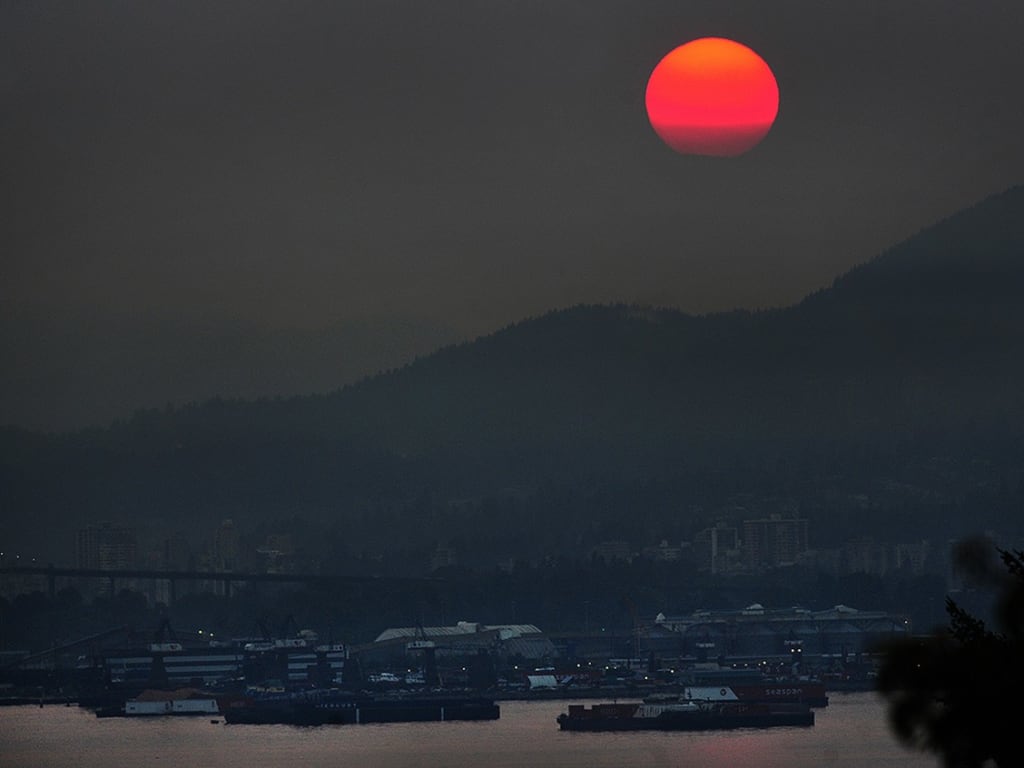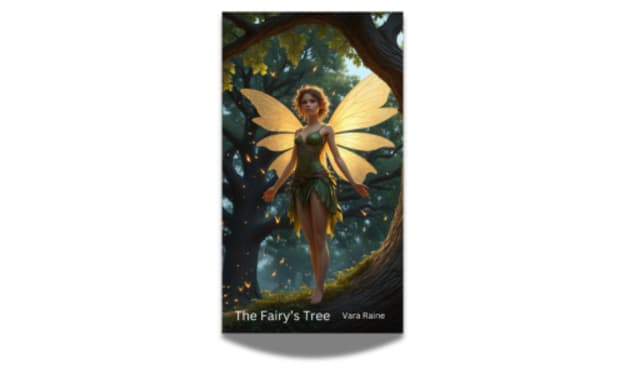Nocturne
Sometimes the end comes slower than you'd think.

Before the final nightfall there were all the others: thousands of irrelevant squandered dusks we’d all ignored, smug in our certainty that day would reassert itself the way it always had. Sunsets, we figured, were for special occasions: the drowsy tumble of the blood-red orb into the warm dark waves on some South Pacific island honeymoon, the garish spray of gold and violet against the bright slopes of a ski resort. A million obligations plucking at our psyches every instant, the kids and the coworkers and the spouses and the people with whom we were cheating on the spouses, the cryptocurrency and the foreclosures and the meal prep, the philanthropy and the high-intensity interval training and the end-of-life care for our aging parents, and we were supposed to indulge in such repetitive banalities as sunsets?
I shouldn’t speak for everyone, though, as Dr. Ballard would undoubtedly remind me. Shouldn’t slip so comfortably into that we, as though all of humanity shared my naive dismissal of twilight. It makes me sound insufferable, which I’m not. In our first session, seven months and an eternity ago, Dr. Ballard confirmed this for me. “Suffering is the first hallmark of life,” she told me, halfway through my petty outpouring of various long-nurtured, stupid hurts. She was a Buddhist and a mom and a cyclist and had refreshingly unsexy glasses. She advocated acceptance, especially acceptance of uncertainty, which was apparently the second hallmark of life. “To call yourself insufferable is to reject your innate worth as a life-force,” she told me. In the perpetual dark, months later and far too late for it to matter, I think I’m beginning to understand what she meant.
Dr. Ballard’s office, which by now is either looted or rubble or both, was in the lobby of a beige behavioral center in the Valley with a cramped parking lot. That first session, too embarrassed to allow the valet into my fast-food-strewn CR-V, I’d parked down the street. I’d cursed the sun that afternoon: we were in the midst of a prolonged heat wave, and its unusual intensity had coaxed patches of sweat from my armpits in the two blocks between my car and the building. The sun had seemed permanent then, solid enough to withstand the occasional curse. In the waiting room I sat under the air conditioner vent, letting the cold air buff my perspiration away, and, on an iPad given to me by the secretary, filled out a fifteen-question survey about my feelings, which I found difficult, considering how I no longer had any.
I knew I’d had emotions at some point; I could remember, if not how they felt, at least my reactions to them. But I couldn’t make my body recall them. I was cocooned, untouchable, remote. It was like watching a once-favorite movie on a hotel television: I watched my old self sob, yell, laugh, fall in love, and the whole time fought the urge to check my phone for notifications. I wound up filling in each question with the most neutral answer possible. When Dr. Ballard came down the hall and called my name, I inhaled to make sure my deodorant was working, and then I followed her down the carpeted hallway. A poster on her wall showed a panda sifting pensively through thick green stalks of bamboo, above a caption reading nourish. After she explained that I was not, in fact, insufferable, we discussed the real reason for my presence, the thing that had happened to me, that had sutured off my nerves and left numbness in their place. The fulcrum between who I’d been and who I was. I discovered, at one point, that I was crying, which in turn shocked me into something I vaguely recognized, for the moment or two in which I experienced it, as joy. After the session ended I found a parking ticket on my windshield, which felt, at the time, pretty cataclysmic.
I kept going to her: at first out of obligation, then, when my caseworker deemed me officially stable enough to resume work without further mandated counseling, just because I liked her. I found myself looking forward to the fifty minutes we shared each week like a kid anticipating Christmas. In her calm, stately way, Dr. Ballard patiently labeled the trillion banging doors of my psychic cabinet and equipped me with the tools to open some and leave others permanently locked. We met once a week for twenty weeks, and I could feel the slightest seismic changes in my dormant amygdala, could sense the stirrings of something that felt a lot like feeling. And then America’s first national park exploded and the long night suddenly began.
I miss her, Dr. Ballard, but she’s dead. So are all her neighbors, and their neighbors, and their neighbors. The eruption zone was totalitarian in its destruction. Satellites worked weakly for a few days afterwards, kept beaming us footage that, for some reason, still felt valuable: the blast, we all saw in those seventy-two hours before the Internet failed, was total and ghastly and massive. The remnants of Yellowstone were, obviously, at its epicenter, but the dead zone sprawled outwards in all directions with a circumference of several hundred miles. It was nothingness: a smoldering gap on the map, a vacuum where several states and several million people had been just days before. It had seared the atmosphere, sullied the water table, was beginning to wilt the crops. Its burgeoning clouds of ash, spread across our continent, had erased the sun.
Dr. Ballard had just bought a condominium in Idaho, on the third floor of a glass-and-redwood complex jutting out over the undulating shine of the Snake. During our last session, which had taken place over videochat, she’d toured me through the place while I complained about my newest boyfriend Isaac and his incompetence at navigating the labyrinth of my neuroses. “I just feel like he should know what to do by now,” I’d probably whined, as she flipped her phone camera to show me the river gleaming below, people in neon life-jackets bouncing through its rapids on inflatable rafts, salmon, slick beneath the glittering surface, shouldering their way upstream with that grim and senseless determination, their only goal to spawn more salmon who would end up doing the exact same thing.
I remember seeing all of it but caring about none of it: the river, the cliffs, the majestic march of greenery across the treelines of the distant mountains. It was all impossibly flat and faraway. I remember complaining about Isaac’s most recent gift, which I’d felt to be insultingly paltry and generic: a heart-shaped locket made of plastic that pretended to be metal, slipped onto a cheap sterling-silver chain whose fragility I could feel in my fingers as I unwrapped it at my birthday dinner, in front of all my pretty, whispering friends. I’d called him baby and kissed my gloss off onto his chapped lips, drained my flute of flat champagne and dreamed briefly of snapping the thing in half, dropping it into the neon-pink bar toilet and flushing. Instead I’d let him clasp it around my neck and felt it burning there all evening like a crucifix on a vampire. At home, as he snored naked and drunk beside me, I’d opened it up in the shallow pool of lamplight and found nothing inside but a stock photo, a grayscale couple beaming with white teeth against a field of what looked like wildflowers.
If Dr. Ballard were alive, instead of being a fluttering pile of instantly-vaporized ash, I like to think I know how she’d advise me. “People do watch sunsets,” she would say, watching me shred tissues compulsively with my nail-bitten fingers. “They do take time to appreciate the world. They do, as you know you should but refuse to, regularly bask in the generous emotions of wonder and awe.” Then she would probably tell me about her next-door neighbor, whose third-floor balcony abutted hers, the only things separating them four feet of air and the mutual pretense of privacy. She’d tell me about the egg-chairs hanging on the neighbor’s balcony, one white wicker, one brown. Every morning the woman sat in the white chair to watch the sun rise. Every night, the brown chair, to herald its setting. “These are the moments,” Dr. Ballad would tell me, over the phone, as she sat on her own balcony and watched the river slip by beneath her, “which accumulate into your life. You must pay attention. To wait for someone else to shoot the starting gun is to turn bitter. Your life is happening now.”
And, phone tilted between my neck and ear, I would agree with her halfheartedly, crack a hard seltzer and tell the voice-controlled remote to play The Office for the sixteenth time. I would leave the blinds closed, sit in the dim of my living room, watch the phone light up with calls from Isaac and go dark. I would note, remotely, the gradual lessening of sunlight spilling in through the slim slits in my Venetians, and consider, then abandon, the idea of venturing outside to acknowledge the sunset. I would fall asleep on the couch and wake up several hours later and buy a sugar-free Red Bull at the gas station on my way to work, the sun screaming its way through my windshield onto my hungover forehead.
If she were alive. If the sun had come up again, the way it always did before. I am not a fantasist; I can accept the reality of our situation. I understand the concept of a nuclear winter. There are cans of food in my cabinets which I know will not outlast the endless night. The electricity has long since quit; my phone is dead, as is my computer, my television, my IKEA lamps, my microwave. My therapist. I tell myself that Dr. Ballard’s proximity to the eruption means she died the merciful way: blinking out in a shudder of insufferable brightness, there and then not there, ash mingling with ash in the guttural alien wind. I’m not sure about the others: my parents, my sister, my boyfriend. Right after the eruption, in those first few desperate days, my phone was half-charged but still useless: the network was clogged, the sky was ash, the sun was gone. I am not sure how long my futile battery lasted; without the segmentation of day and night, time passed with the slow creep of black mold colonizing the walls of a house. At some point my phone gave its little expiring twinkle and turned off for the last time.
Sometimes, when my body clock tells me it’s night or near enough, I go out to my patio, a sad little slab of concrete surrounded by high wood fencing. I try to ignore the sounds from my neighbors’ apartments: the wailing, the gunshots, the curdling laughter that rises like bad fireworks. I spoon cold black beans from a can and seek the light of the moon through the shroud that hangs across our atmosphere like an evil blanket. Sometimes, it’s bright enough that I can see, at least a little. Last night I was digging around in my pockets, just for something to do. I pulled out that locket, looked at the couple inside. Blurry, captured mid-laugh or at least faking it convincingly enough. They were both attractive, which you’d expect from stock models. I didn’t look long at their faces, though. I only had so much light, and so faint, and who knows how long the moon will manage to penetrate this growing cloud? No, I looked behind the couple. I looked at the flowers, in their shapeless gray melange, and I imagined them in color: a riotous little sunset spreading in the background. Every existing shade of pink and orange and violet. Every inch of it ignored.
About the Creator
Enjoyed the story? Support the Creator.
Subscribe for free to receive all their stories in your feed. You could also pledge your support or give them a one-off tip, letting them know you appreciate their work.






Comments
There are no comments for this story
Be the first to respond and start the conversation.